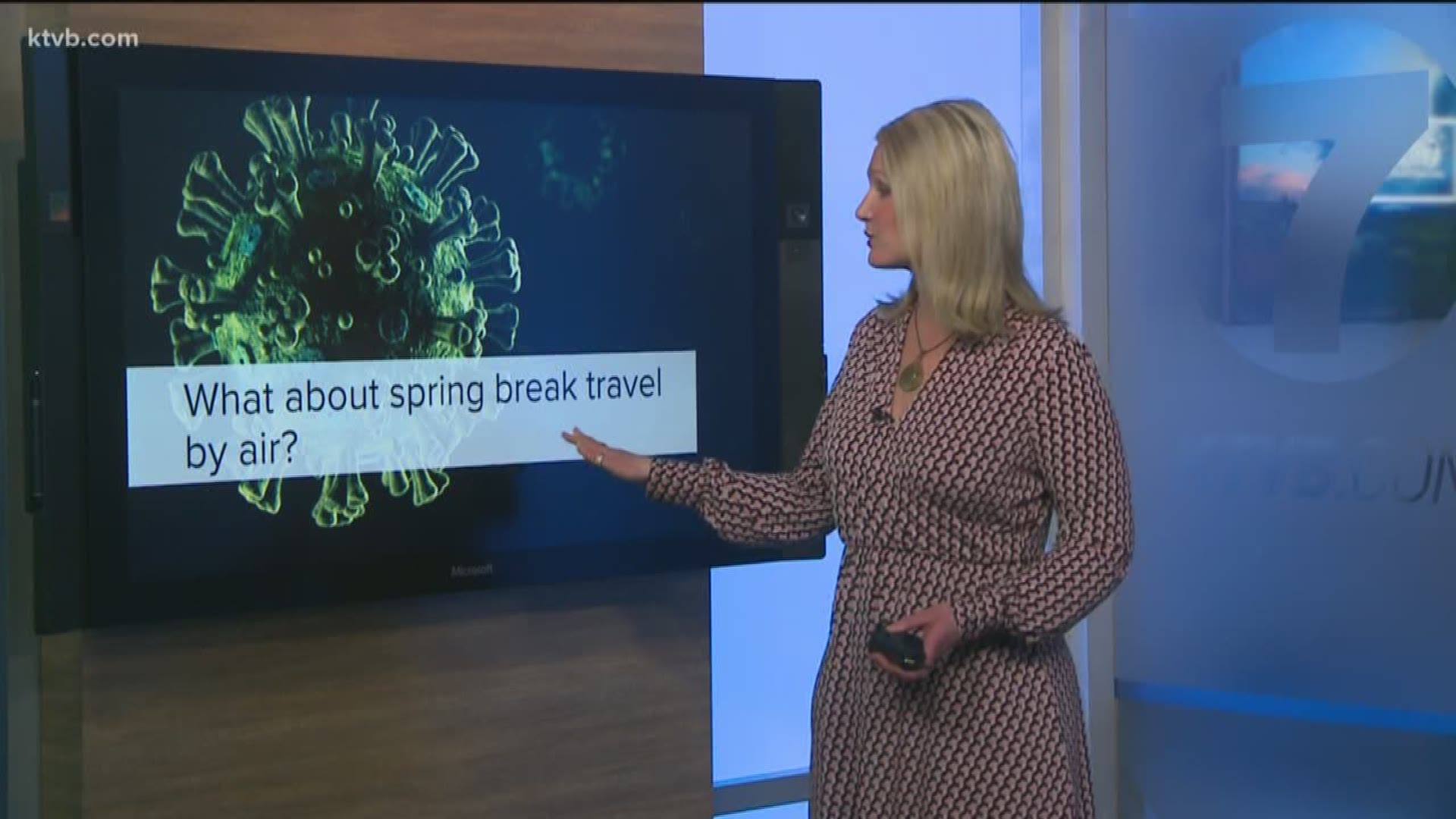BOISE, Idaho — There have been no confirmed cases of coronavirus in Idaho, but dozens of people have been monitored for the fast-spreading virus.
According to the Idaho Department of Health and Welfare, as of Friday morning 32 people in the state have been monitored for coronavirus, and 14 of those people are still being watched.
Two people have been tested for coronavirus, including a man who died after a trip to China, but the Ada County coroner announced Tuesday that those results came back negative.
Idaho health officials say the risk of coronavirus spreading in Idaho "is low at this time," but urge everyone to take precautions to avoid all respiratory diseases, including staying home if you’re sick, avoiding sick people, and covering your coughs and sneezes with the crook of your elbow or a tissue.
The Centers for Disease Control and Prevention called the outbreak of the coronavirus in the United States "inevitable" during a press conference on Tuesday.
"Now it's not so much a question of if this will happen anymore but rather more a question of exactly when," a CDC official said.
While the risk of contracting coronavirus in the U.S. is still very low, the agency is urging schools, businesses and health facilities to prepare for an outbreak.
RELATED: 'It has real economic effects': Boise financial advisor talks about ripple effects of coronavirus
Here are some common questions and answers about the coronavirus:
Q: Have you seen “COVID-19” floating around in reference to coronavirus?
A: COVID-19 stands for coronavirus 2019
Q: What is the CDC saying over social media?
A: "Currently there are very few cases of #COVID19 in the US & no reported community spread," the CDC said in a tweet. "But as more countries see community spread, successful containment becomes harder and CDC is preparing for community spread in the US."
Q: What are the up-to-date numbers concerning coronavirus?
A: A total of 14 people have confirmed cases of coronavirus in the United States, according to the Centers for Disease Control and Prevention’s latest update. Of these cases, 12 were believed to have been caught while traveling, while 2 were person-to-person transmissions in the US. In total, 445 people have been tested or are being tested for the disease in the US.
The World Health Organization states that there are 53 cases in the United States. It is unclear if this difference in the numbers is due to different criteria, such as the WHO counting American cruise ship passengers as cases in the US.
Outside of those tested, many states, including Washington, are monitoring people for the disease. This means health officials are regularly checking in with people who may have been exposed to the disease to see if they start showing symptoms.
Worldwide, the total number of cases is much higher, sitting at 81,109 confirmed cases, according to the WHO’s latest report. However, most of these cases are in China, where there are 78,191 confirmed cases. The virus is believed to have originated in China’s Wuhan Province.
The virus has spread to all continent, except South America and Antarctica, according to the WHO. Europe has recently seen an increase in cases, with Italy being the hardest hit. Italy has 528 confirmed cases out of 621 in Europe, and also has accounted for 14 of the continent's 16 deaths.
Q: Are there people who are being monitored?
A: Yes. People who have had close contact with someone who was diagnosed with the coronavirus are being closely monitored. As of last check, there are 76 people in Oregon and 384 people in Washington.
Q: Would we be prepared if it spread to the United States?
A: The CDC is now advising employers and schools to think about planning for possible widespread disruptions like limiting travel and large meetings, allowing workers to tele-work, and closing schools or allowing internet school work.
While talk of the coronavirus might sound scary, it’s important to also remember the CDC has emphasized that the immediate health risk to the general public is low. There is not a vaccine yet. The National Institutes of Health say trials could start within a couple of months. But it’ll probably be another year, at least, before it’s widely available.
Q: Are facemasks effective in preventing exposure to coronavirus?
A: The CDC does not currently recommend the use of facemasks to help prevent novel coronavirus. Rather, everyday preventive actions recommended, like staying home when you are sick and washing hands with soap and water, to help slow the spread of respiratory illness.

